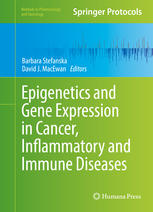

Most ebook files are in PDF format, so you can easily read them using various software such as Foxit Reader or directly on the Google Chrome browser.
Some ebook files are released by publishers in other formats such as .awz, .mobi, .epub, .fb2, etc. You may need to install specific software to read these formats on mobile/PC, such as Calibre.
Please read the tutorial at this link. https://ebooknice.com/page/post?id=faq
We offer FREE conversion to the popular formats you request; however, this may take some time. Therefore, right after payment, please email us, and we will try to provide the service as quickly as possible.
For some exceptional file formats or broken links (if any), please refrain from opening any disputes. Instead, email us first, and we will try to assist within a maximum of 6 hours.
EbookNice Team

Status:
Available4.7
29 reviewsThis practical collection examines methodologies originating from the benefits of genome-wide approaches to studying epigenetics, which has opened the emerging field of epigenomics. Focusing on the areas of cancer, inflammatory and autoimmune disorders, chapters discuss three main components of the epigenome and their role in the regulation of gene expression and present a detailed method section specific to studying each component, including data analyses, troubleshooting, and feasibility in different experimental settings. The main topics are high-throughput and targeted methods for DNA methylation analysis, nucleosome position mapping, studying epigenetic effects of gut microbiota, optical imaging for detection of epigenetic aberrations in living cells, methods for microRNA, and histone code profiling. Written for the Methods in Pharmacology and Toxicology series, the book includes the kind of detail and implementation advice to encourage success in the lab.
Authoritative and easily applicable, Epigenetics and Gene Expression in Cancer, Inflammatory and Immune Diseases aims to provide pharmacologists, molecular biologists, bioinformaticians, and toxicologists with a vital background on epigenetics and state-of-the-art techniques in epigenomics.